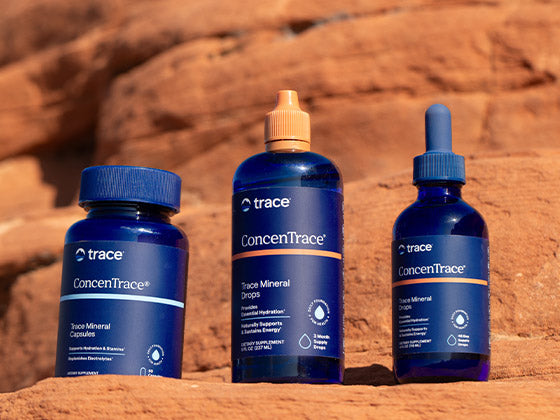Science

Chloride And Your Health: Why This Mineral Is Vital For Wellness
Learn what is chloride and why it supports wellness. Trace explains this vital mineral’s role in health, shop now to keep your body balanced daily.

Fall Wellness Prep: How Trace Minerals Help You Stay Healthy Before Cold Weather Hits
Wondering if cold weather makes you sick? Learn the science, seasonal risks, and how trace minerals support immunity and energy this fall.

Colloidal Silver And Immunity: Can It Help Protect Your Health?
Learn the benefits of colloidal silver and its role in immunity. Trace explains how it may support health, shop today to strengthen daily wellness.

Sodium And Hydration: Understanding Its Role In Optimal Health
Understand the benefits of sodium for hydration, energy, and recovery. Learn how Trace’s clean, traceable minerals power optimal health. Start today.

Potassium’s Role In Heart Health, Muscle Function & More
What does potassium do for the body? It supports heart rhythm, muscles, and nerves. Get science-backed tips and remineralize with Trace today.

How To Boost Your Immune System Naturally With Essential Minerals
Find out how to boost immune system naturally with essential minerals. Note down science-backed tips and try Trace’s mineral support today.

Can You Take Magnesium Every Day? Benefits, Dosage & Safety
Can you take magnesium every day? Find out benefits, safe dosages, and how Trace Minerals supports daily wellness with clean, tested formulas. Read now.

The Role Of Trace Minerals In Restoring Your Body's pH Balance
Learn about trace minerals from ConcenTrace and see how to fix your pH balance. Feel the difference in your health today.

Magnesium Deficiency Signs Most People Miss — And What to Do
Dive into how to identify magnesium deficiency, what causes it, and how to restore balance with Trace Minerals’ ConcenTrace® Daily Mineral Powder.
